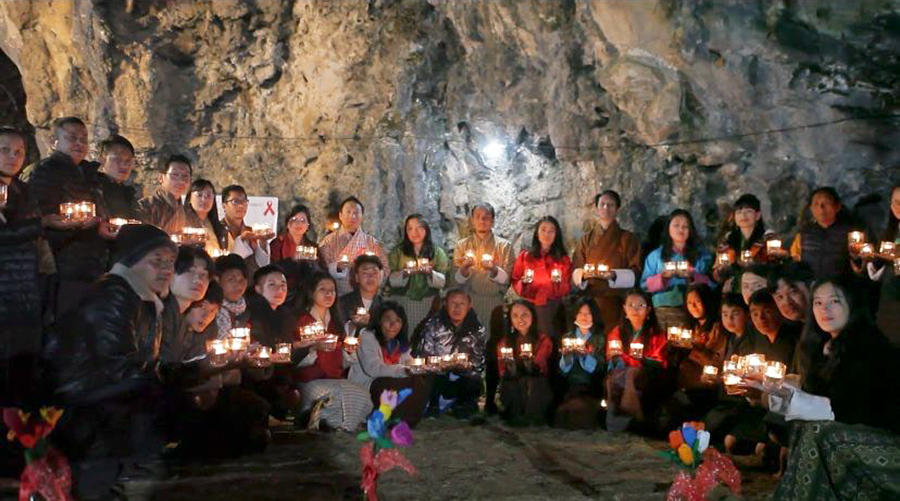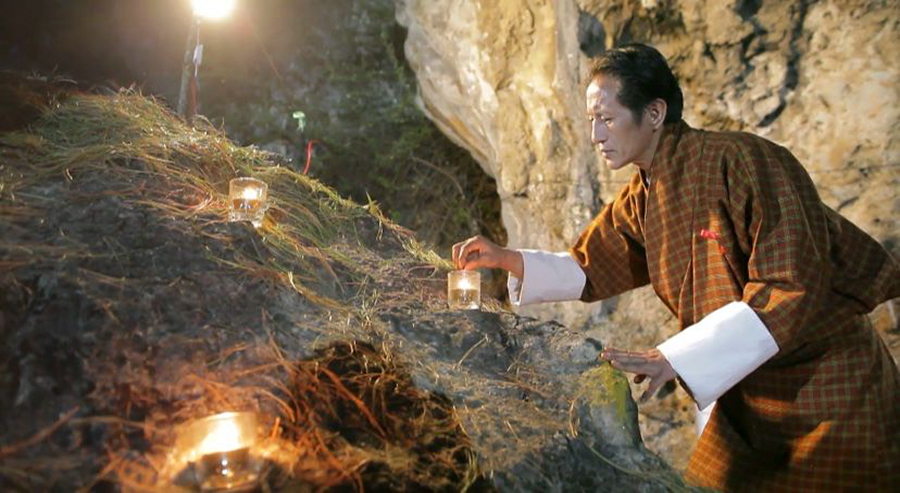
Since the detection of the first HIV AIDS case in the country in 1993, the country lost about 200 people to the deadly virus. Globally, the virus has claimed the lives of approximately 38 million people. To remember the lives lost to HIV AIDS, Lhak-sam, Pride Bhutan, and the Bhutan Kidney Foundation came together to mark the International AIDS Candlelight Memorial Day at Geynekha in Thimphu, yesterday.
 The day was marked with a theme of spreading love and solidarity to build stronger communities. As a remembrance, members of the three organisations and the people from the local community lit butter lamps during the memorial event.
The day was marked with a theme of spreading love and solidarity to build stronger communities. As a remembrance, members of the three organisations and the people from the local community lit butter lamps during the memorial event.
“This day is to remember the people who have lost their lives to HIV AIDS, and also to pay our homage and gratitude to those people who have fought tirelessly to bring about meaningful change in HIV response,” said Wangda Dorji, the executive director of Lhak-sam.
He added that even though people’s attitude and behaviour towards the HIV epidemic has changed over time, stigma, and discrimination against those who are living with the virus still exists.
Such stigma and discrimination prevent people from coming forward for voluntary HIV AIDS testing.
“Around the world, regionally and locally, stigma and discrimination are one of the key pressing issues that we deal with. But thankfully, I think in Bhutan, we do not have extreme cases of stigma and discrimination that have happened like in other countries,” said Tenzing Gyeltshen, the executive director of Pride Bhutan.
The executive director of Pride Bhutan added that it is important to have the active involvement of both the public and affected families to reduce the stigma surrounding HIV AIDS.
Meanwhile, over the span of 30 years, from 1993 to December of last year, sixty children were diagnosed HIV-positive in the country, all of which are mother-to-child transmission cases.
“Although mother-to-child transmission has decreased over time, occasional cases still occur. Regular and timely check-ups can prevent a child from testing HIV positive, even if one or both parents are HIV-positive,” said Tshering Choden, a member of Lhaksam.
According to Lhak-sam, the country has seen improvements in medication and treatment of people living with HIV AIDS. Individuals living with HIV now take only a pill per day compared to six pills previously.
Today, Bhutan has over 650 people living with HIV/AIDS, with almost 80 per cent of the cases aged between 25 to 49 years.
Deki Lhazom
Edited by Sherub Dorji





